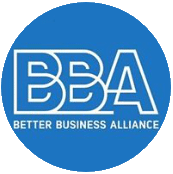Eureka! You have a unique idea for an endeavor that you’re passionate about or believe can meet the needs of many consumers. You have collected feedback and tested out this great idea. But before you can bring your idea to life, you need to know how to incorporate it into a business.
Having your big idea allows you to choose a business model and create a business plan that acts as the foundation for your new venture. Incorporation is a critical next step before launching a small business.
In this post, we’ll take a look at what it means to incorporate as a business entity.
We will also outline some of the most common entities for incorporation, including these formations:
- Sole proprietorship
- Limited liability company (LLC)
- Corporation
- Professional corporation
- Nonprofit corporation
What does it mean to incorporate a business?
How is incorporation defined?
This structure allows the business to become a separate, legal entity from its owner. An incorporated business may also receive liability protection. This type of protection is known as limited liability.
Limited liability helps separate personal and professional assets. This means that in the event of an unforeseen circumstance, such as a lawsuit or business debt, there is protection from the risk of satisfying the debt or lawsuit with personal assets. These assets may include houses and cars, which are protected by limited liability protection.
What would happen if you did not incorporate your business? It is still possible to run a business as an unincorporated company. However, an unincorporated business faces certain dangers that would not impact its incorporated counterpart:
- No limited liability protection.
- Difficulty establishing credibility. Consider startups that have abbreviations like “LLC” and “Inc.” after their names. Customers will trust these companies because of their professional identity. It becomes more difficult to willingly do business with certain industries, like retail and medical practices, that do not have this type of proven legitimacy.
- Quiet concern about “what if?” scenarios. Let’s say you run an unincorporated business. Have you ever thought about how you might handle the worst-case scenario? What would you do if your website was hacked and hackers compromised personal data? What if a customer was accidentally injured on your premises? Incorporation, at the bare minimum, allows entrepreneurs to silence these thoughts. It provides peace of mind in knowing that you, and your incorporated business, will be in good hands regardless of what happens next.
Common entity types
Now that you’re ready to incorporate your business, what are your entity options? Let’s take a look at some of the most common entity formations.
There are even more business structures than the ones listed below, including S corporations and benefit corporations.
Please note, I personally cannot advise entrepreneurs on which entity is the “right” structure for their business. However, what I can do is provide some of the most common business entities and a bit of information about each formation.
Sole proprietor

This entity formation is one of the simplest to form. It is also the only one on this list — and the only business entity, actually — that does not provide its owner with limited liability.
If you set up your business as a sole proprietor, you will have full control of the business.
In addition to being the boss, the sole proprietor must also take responsibility for everything that impacts the company.
This may range from good things, like favorable press, to bad circumstances, such as lawsuits, that leave the business and its owner in a precarious situation.
Sole proprietors who are in industries that need limited liability protection may incorporate as or switch to an entity that provides it.
Related: Which business entity is best for an ecommerce company?
Limited liability company (LLC)
A limited liability company, or LLC, is a popular entity formation choice for many entrepreneurs. It generally protects its owners (also referred to as “members” under an LLC) from personal liabilities for business transactions.
LLCs are also fairly flexible entity structures. There are fewer compliance requirements necessary for an LLC, such as annual meetings or minutes. This makes it a bit easier to maintain.
One of the greatest draws of an LLC is that the entity is taxed as a pass-through entity by default.
The profits of the business “pass-through” to the owners. This helps avoid double taxation.
Profits and losses are reported on the individual tax returns for the owners, not at the business level. Other losses or operating costs of the business can also be deducted on personal tax returns, which can help offset other income. As a return, it is usually a bit simpler for owners to file taxes for an LLC.
Do you plan to run a business with other owners, or members? It is advised that the LLC sets up a written operating agreement. This is a document that details the rules and regulations for operating as an LLC.
Some areas to cover may include but are not limited to, the roles and responsibilities of the LLC’s members, the members’ rights and voting power and the ownership interest of each member.
Corporation

Corporations are ideal for entrepreneurs who know they may want to expand the business worldwide or go public with an initial public offering (IPO). Much like an LLC, incorporating as a corporation also provides its owners with limited liability protection.
However, running a corporation is not nearly as flexible as running an LLC. This entity is much more structured. It must be able to meet certain compliance requirements. The organization must have a board of directors and take detailed minutes during annual meetings.
In addition, corporations must follow a set of corporate bylaws. This is akin to an LLC’s operating agreement. Bylaws allow the business to maintain consistency throughout the corporation’s operations.
Professional LLC and professional corporation
Now that you have an understanding of an LLC and corporation, let’s talk a little bit about professional LLCs (PLLCs) and professional corporations (PCs).
These two entity formations are a bit more specialized than their standard counterparts — and typically a good match for entrepreneurs occupying specialized professions.
Who qualifies to incorporate as a PLLC or PC? These are professionals that require state licenses in order to offer professional services. They must work in certain occupations and offer specific services. Some examples of these niche businesses include, but are not limited to, the following professions.
- Lawyers
- Physicians
- Engineers
- Doctors
- Dentists
- Optometrists
- Accountants
- Architects
Unlike a standard corporation or LLC, filing as a PC or PLLC requires additional information. You must be able to provide proof of your specialized profession when filing as one of the two entities. For example, you may use your state license.
In the case of PLLCs, you’ll also need to check and see if the state you do business in has authorized PLLC legislation. A state that provides PLLC legislation gives professional LLCs the go-ahead to limit personal liability for claims related to the errors or malpractice of a member.
Authorizing PLLC legislation means that the member forming a PLLC isn’t held personally responsible for these claims.
Not every state has authorized PLLC legislation, however, so check with your state’s Secretary of State office before filing to ensure PLLC formations are authorized for business.
Nonprofit corporation
Nonprofit corporations have several similarities to standard corporations. However, the greatest difference is that a nonprofit corporation is founded for a charitable purpose. Some of these purposes may include but are not limited to, the following initiatives that benefit the general public.
- Conducting charitable work
- Aiding in disease prevention
- Addressing social issues
- Advancing environmental goals
A nonprofit corporation is formed to carry out a charitable, educational, religious, literary or scientific purpose. Incorporating as a nonprofit corporation means following certain, similar steps like that of a standard corporation. These include preparing articles of incorporation to incorporate the business and creating bylaws.
It is also critical that nonprofit corporations file for tax-exempt status. The most popular type of exemption is 501(c)(3) status. This status exempts eligible corporations from paying federal and state taxes because the corporation is pursuing a nonprofit mission.
Additional tax advantages are also available to nonprofit corporations. Contributions to charitable corporations are tax-deductible and fringe benefits may be deducted as business expenses.
How should a nonprofit corporation operate? Much like a standard corporation, it is important that a nonprofit corporation follows formality requirements to stay in compliance. You will need to file annual reports, attend annual meetings and take minutes to maintain corporate status.
How to choose an entity when incorporating a business
Still have questions about incorporating as one of the business entities mentioned above or an alternative option? Consult a legal professional, like an attorney, for assistance in addressing answers to any further questions.
Related: From naming to writing a business plan — start a business in 3 steps
What comes next after incorporation?

After you have filed the paperwork and paid the filing fee to incorporate your small business with the local Secretary of State, remember to fulfill additional requirements your small business may need before it fully opens its doors to the public.
Trademark your brand
If your business has a unique name, logo, design or slogan, you will need to file for federal registration of this mark. Conduct a name search through the USPTO’s trademark database prior to registering for a trademark. This will allow you to see if your mark is available or if there is a similar, or same, trademark that has already been registered.
Obtain an EIN
An EIN is an abbreviation for an employer identification number. This is also referred to as a tax ID. It is a nine-digit number issued by the IRS to identify employer tax accounts. It is necessary to obtain an EIN if your business plans to open a business bank account, hire employees, or build corporate business credit.
Designate a registered agent
A registered agent often referred to as an RA, is the official point of contact between your business and the state. Registered agents receive paperwork on behalf of the business from state and county agencies. They organize the documents and pass the information along to the business owner. Not only does an RA deliver necessary materials like renewal reminders in a timely manner, but they are also discrete in their delivery to ensure no confidential information is leaked to the public.
File for business licenses
The business licenses and permits your company needs to operate depend on your industry and the city and state in which you do business. Even your entity formation determines if you may need a specific business license. Reach out to your local Secretary of State to determine which licenses you need and file for the appropriate materials.
Fulfill annual maintenance requirements
Is it time to file your annual report? Do you need to pay franchise tax fees? The requirements for your annual maintenance will depend on the entity you incorporated as. From day one, it’s important to stay organized with upcoming filing deadlines and file all materials on time. This ensures your business stays in good standing with the state and does not fall out of compliance.
Did you check off each of the items above? Great! You’re ready to launch your small business — welcome to the world of entrepreneurship.
This content should not be construed as legal or tax advice. Always consult an attorney or tax professional regarding your specific legal or tax situation.
The post How to incorporate a business appeared first on GoDaddy Blog.




